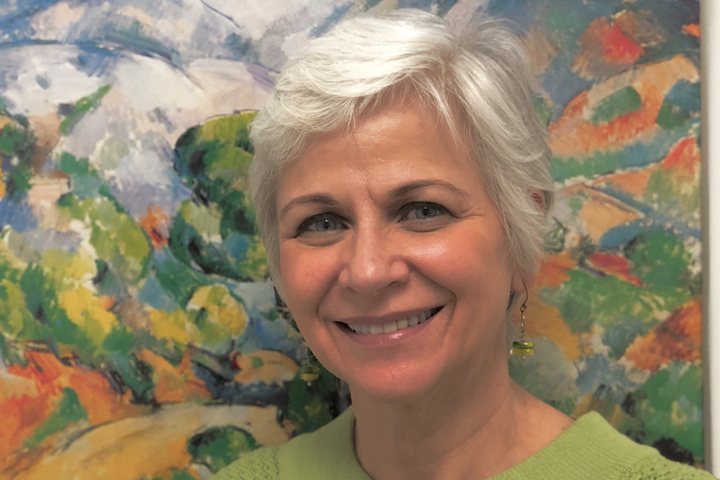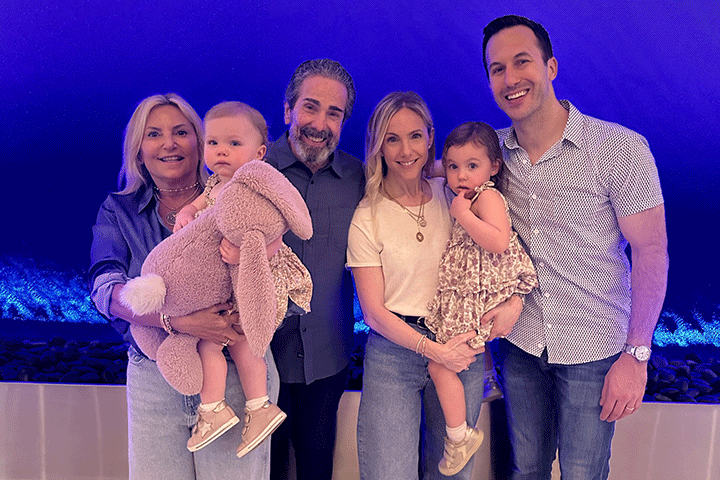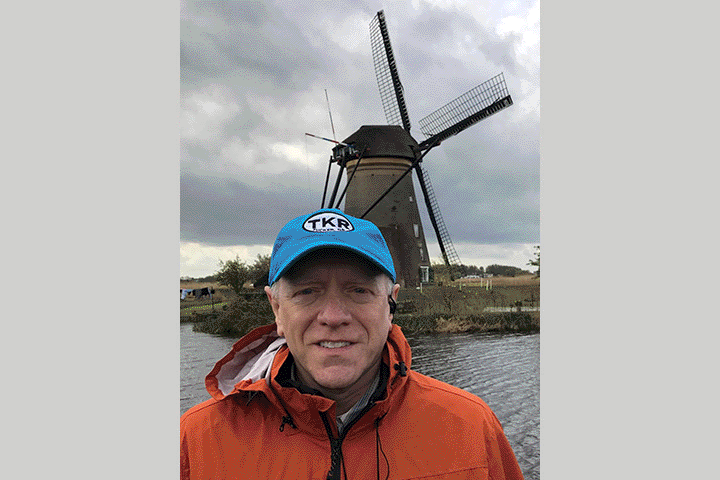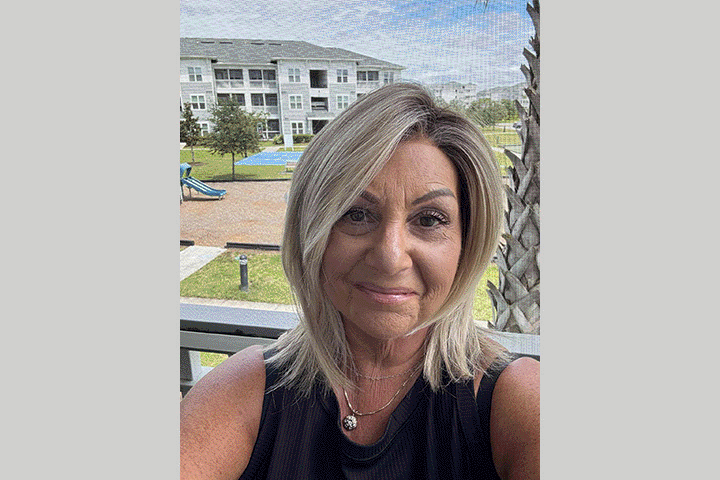Genomic Testing of Pancreatic Tumor Leads to an Important Discovery

- Stage III pancreatic cancer
- Chemoradiation before surgery
- Pancreatectomy removes the tumor
- Genomic testing leads to discovery of Lynch syndrome
I was diagnosed with stage III adenocarcinoma of the pancreas on January 28, 2014. I was 56 years old.
I started noticing pain in my back the previous November, but I had started a new exercise class and figured that aggravated my back somehow. I modified the exercises but the pain persisted. Then I developed stomach aches after every meal. I lost weight over the holidays, which is not the time of year one expects to drop weight! I decided that these three symptoms were enough to see my primary care physician.
My doctor sent me for a CT scan, which revealed a mass on my pancreas. I then had blood work, including a CA 19-9. The tumor was wrapped around my superior mesenteric artery. This meant the tumor could not be surgically removed at that time.
A Roller Coaster Ride to Surgery
I went to the Cleveland Clinic for treatment. Because of the location of the tumor, the one surgeon I met with gave me little hope. I was told that my tumor was inoperable, and chemo might help (but I needed to consider my quality of life), and I likely had less than one year to live.
We then went to Johns Hopkins for a second opinion, and I met with Dr. Daniel Laheru, an oncologist. We made a plan: I would have chemotherapy and radiation at home, and I would go to Hopkins every three months for scans and blood work. The doctors at Johns Hopkins coordinated with the doctors at the Cleveland Clinic, and I had six months of FOLFIRINOX, supervised by Dr. Bassam Estfan.
Once the chemotherapy was done, I had five days of stereotactic body radiation therapy (SBRT) with radiologist Dr. Joe Herman (now at Northwell Health in New York). After completing radiation, Dr. Laheru did a scan of my tumor and found that it had shrunk—I now qualified for surgery. My surgery was scheduled for September 30, 2014, at Johns Hopkins, with Dr. John Cameron. The original plan was for me to have a Whipple, but when Dr. Cameron opened me, he realized that the chemo and radiation had been so successful that I was able to have a distal pancreatectomy and splenectomy (removal of my spleen).
Therapies to Help Me Through Treatment
The chemotherapy caused side effects of fatigue, hair loss, loss of appetite, and weight loss. Palliative care was instrumental in helping me with these problems. I worked with Dr. Chirag Patel, a palliative care and supportive oncology specialist at the Cleveland Clinic. He was vital in helping me deal with the side effects of chemo. I think everyone on chemo should seek palliative care.
I walked and used weights to keep some strength. I took a ginseng supplement to help with fatigue, and two prescription appetite stimulants: Zyprexa and Megace. I used some complementary therapy techniques—light therapy for depression, reflexology, and Jin Shin Jyutsu, a Japanese form of acupressure.
My recovery from the surgery was long, and it took some time for my digestive system to function normally. I had periodic episodes of diarrhea and vomiting for the first year. Now, I am able to control it with probiotics and digestive enzymes.
Genomic Testing Proves to Be Important
As part of my treatment I had genomic testing of my tumor, through FoundationOne. I was found to have an MSH6 mutation. Through further blood work I was found to have Lynch syndrome, a genetic condition that puts me at risk for other cancers. I am under high surveillance for cancers related to Lynch syndrome, including colon, skin, stomach, bladder, and uterine cancers.
My life today is very active and normal since my recovery. I changed one thing: when I went back to work I decided to cut back on my hours, and only work part-time now. I have taken several wonderful vacations overseas and have been able to attend many happy events: weddings, baby showers, graduations. My energy level and appetite are good. I exercise five to six times a week. I can honestly say I never hesitate to do anything because of my surgery.
Six years after her diagnosis of pancreatic cancer, Connie passed away. We are deeply appreciative that she was willing to share her story with Let’s Win, so that other pancreatic cancer patients and their families can learn more about genetic testing. Our deepest sympathy to her family.






